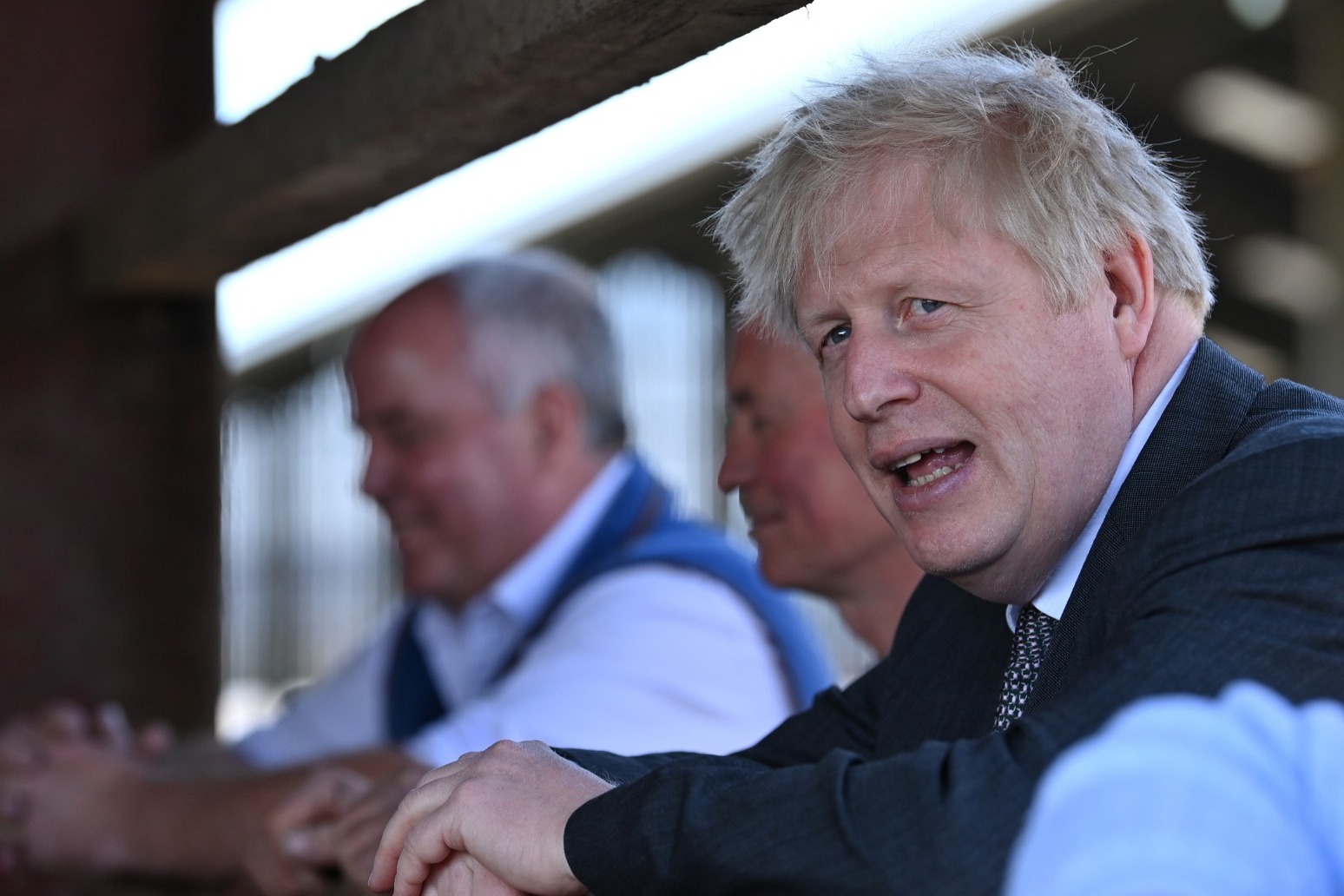Adult education laws will be rocket fuel for levelling up agenda Johnson says
Written by Radio News Hub on 11 May 2021
 Adult education laws will be ‘rocket fuel’ for levelling-up agenda, Johnson says
Adult education laws will be ‘rocket fuel’ for levelling-up agenda, Johnson says
New legislation aimed at reforming education for older teenagers and adults will be unveiled in what Boris Johnson pledges will be “rocket fuel” for his levelling-up agenda.
The Prime Minister said he was “revolutionising” the adult education and training system as the Government prepared to set out its legislative agenda in the Queen’s Speech on Tuesday.
Downing Street said the promise of a “lifetime skills guarantee” will be central to plans for the new parliamentary session as the Government seeks to rebuild the nation after the coronavirus pandemic.
No 10 said new laws will create a post-16 and adult education and training system that is “fit for the future”.
Fresh legislation will seek to transform the student loan system to give every adult access to a flexible loan for higher-level education and training at university or college.
Ahead of the speech, Mr Johnson said: “These new laws are the rocket fuel that we need to level up this country and ensure equal opportunities for all. We know that having the right skills and training is the route to better, well-paid jobs.
“I’m revolutionising the system so we can move past the outdated notion that there is only one route up the career ladder, and ensure that everyone has the opportunity to retrain or upskill at any point in their lives.”
But Labour called for “action, not more rhetoric” as the opposition urged the Government to set out a a “clear plan to get Britain working for working people”.
Other proposals include giving employers a statutory role in planning publicly funded training programmes through a “skills accelerator” programme.
Education Secretary Gavin Williamson will also be given greater powers to intervene in colleges seen as failing to meet local needs.
Association of Colleges chief executive David Hughes said the announcement is an “important step on the journey to ending the snobbery around technical and vocational education” after a “decade of neglect and cuts” under the Tories.
He also warned that the skills guarantee will only be successful if students can afford to live while studying through a “mixture of loans, grants and welfare support”, adding: “Without this, many simply won’t be able to afford it.”
The State Opening of Parliament, where the Queen sets out the Government’s legislative agenda, will be her first major public ceremonial duty since the death of the Duke of Edinburgh.
Its usual pomp and ceremony will be scaled back drastically to reduce the potential for spread of Covid-19, and all attendees will need to have a negative test beforehand.
Labour leader Sir Keir Starmer MP said: “We must seize this moment to create a brighter future for the whole country.
“We must also see detail on long-promised plans to fix the broken social care system, reduce the shocking levels of violent crime and narrow the gap between different parts of the country.
“For 11 years we have had lots of rhetoric and the endless promise of jam tomorrow: that must now be turned to action.”
Ministers have suggested the speech will feature a long-anticipated overhaul of the social care sector.
Sir Andrew Dilnot, who led a review into the future of funding social care which recommended a cap on costs in 2011, warned the Government that failing to act on the issue “can no longer be an option”.
He wrote in the Daily Mail: “For all the Government’s boasts about its dynamic legislative programme, there’s a risk that there will be only the briefest mention of social care in the Queen’s Speech, based on a promise to bring forward a plan later in the year, though without any specifics.
“As life expectancy lengthens and the population ages, the demand for social care is growing rapidly. Moreover, the Covid crisis shone a harsh spotlight on the residential care sector, exposing poor levels of provision, lack of basic resources and a beleaguered workforce.
“It is obvious that we cannot go on as we are.”
The return of the controversial Police, Crime, Sentencing and Courts Bill is also expected after being shelved as demonstrations took place over concerns it would curtail the right to protest.
Civil liberties groups, electoral reformers and senior MPs on both sides of the Commons have also raised concerns over plans to introduce a requirement for voters to prove their identity before casting their ballot.
Legislation to overhaul the asylum system will be set out under a bid to deter migrants from crossing the Channel in small boats.
This has already been sharply criticised by United Nation’s refugee agency, which warned the proposals risk breaching international legal commitments and triggering damaging effects on asylum-seekers who arrive irregularly.
“We recognise the need to improve some asylum procedures, but these plans threaten to create a discriminatory two-tier asylum system, undermining the 1951 Refugee Convention and longstanding global cooperation on refugee issues. It’s not too late for a rethink,” UNHCR representative Rossella Pagliuchi-Lor said.
New legally binding environmental targets are also expected to feature in the speech, as is a planning Bill to ease controls in England under a drive to boost housebuilding.
National Trust director general Hilary McGrady issued a warning to the Prime Minister over the plans, saying the “stakes are high, and reforms need to be carefully considered”.
“The planning system is the most important tool that we have for shaping our physical environment. It is a mistake to characterise it as simply a blocker to new homes, growth and development in general,” she wrote in the Telegraph.
The Times reports the speech will also address the long-awaited ban on conversion therapy, with a consultation to determine the scope of the ban to be held before the legislation is introduced.
Published: by Radio NewsHub







 Spire Radio
Spire Radio